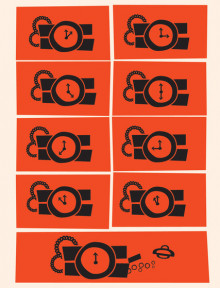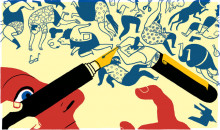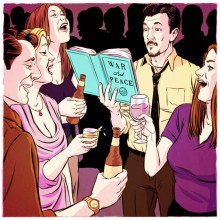The Writer in the Family

Most writers have families, and these close relations embrace their lifestyle. Or do they. Well-known author Roger Rosenblatt suggests that most authors get treated like weirdoes in their own homes – and that they have only themselves to blame. Here is part of what he said in his humorous article:
So there I stood at the front of my granddaughter Jessica’s fourth-grade classroom, still as a glazed dog, while Jessie introduced me to her classmates, to whom I was about to speak. “This is my grandfather, Boppo,” she said, invoking my grandpaternal nickname. “He lives in the basement and does nothing.”
Her description, if terse, was not inaccurate. My wife and I do live on the lower level of our son-in-law’s house with him and our three grandchildren. And, as far as anyone in the family can see, I do nothing, or next to it. This is the lot of the writer. You will hear someone referred to as “the writer in the family” — usually a quiet child who dresses strangely and shows inclinations to do nothing in the future. But when a supposedly grown-up writer is a member of the family, who knows what to make of him? A friend of my son-in-law’s asked me the other day, “You still writing?” — as if the profession were a new sport I’d picked up, like curling, or a disease I was trying to get rid of. Alexander Pope: “This long disease, my life.”
Writers cannot fairly object to being seen in this way. Since, in the nothing we do — the “nothing that is not there and the nothing that is” (Wallace Stevens) — we do not live in the real world, or wish to, it is fruitless and dishonest to protest that we do. When family members introduce us to one of their friends, it is always with bewilderment camouflaged by hyperbole. “This is so-and-so,” they will say, too heartily. “He’s a great and esteemed writer.” To which their friend will reply, “Would I have read anything you’ve written?” To which I reply, “How should I know?”
At home, they will treat us like domesticated, dangerous animals, pet pandas or snow leopards, patting and feeding us, while eyeing our teeth. Or they will make touching attempts to associate us with comprehensible pursuits, such as commerce. When he was 3, my 5-year-old grandson, James, proposed that the two of us go into business together. “We will write things and we will sell things,” he said, thereby yoking two enterprises that are rarely yoked.
Read the entire article here.





